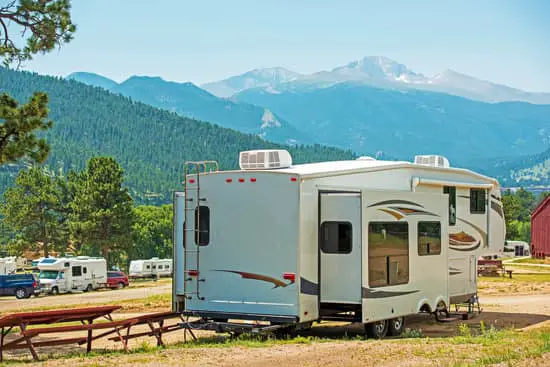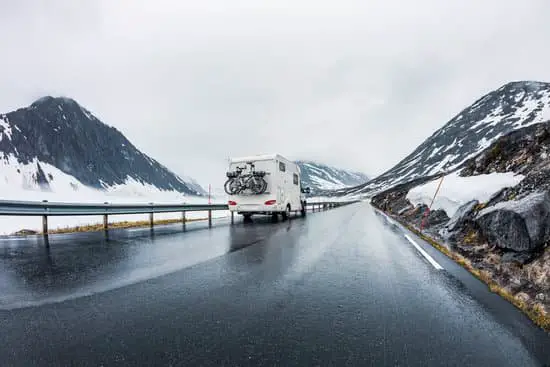You may be wondering, is RV antifreeze safe for my home septic system? In this blog post, the answer to that question depends on what kind of antifreeze you are using. Automotive antifreeze is made with ethylene glycol which can cause damage to a septic system and should not be used in your home plumbing. RV antifreeze has either ethanol or propylene glycol as the active ingredient, which is safe for your septic system and will not cause any damage when used in appropriate quantities.
You must use the right antifreeze in your vehicle and for your home. Automotive antifreeze typically contains ethylene glycol, a chemical that can damage septic systems but will not cause any problems when used correctly. RV antifreeze usually has ethanol or propylene glycol as its main ingredient- both of these are safe for your septic system, and won’t cause any harm if they’re used responsibly.
When we talk about the proper usage of antifreeze in a vehicle or home, it’s important to make sure that you’re using the correct product. Automotive antifreeze is made with ethylene glycol which can lead to septic system damage when used incorrectly but will not cause any problems if used correctly and responsibly. RV antifreeze has either ethanol or propylene glycol as its active ingredient- both are safe for your septic tank and won’t do any harm when they’re used properly.
The active ingredient in automotive antifreeze is often ethylene glycol, while the RV antifreeze has either ethanol or propylene glycol as its primary ingredients. Propylene Glycol or Ethanol used in RV Antifreeze is both safe for your septic system and won’t cause any damage when used responsibly
If you have further questions on whether it’s okay to use automotive or RV antifreeze in your household plumbing systems, be sure to contact your local plumber! They’ll help answer all your questions and make sure your plumbing system is working safely.
What is the potential for Rv Antifreeze to cause a bacterial infection in my septic tank?
RV antifreeze can be used safely and it won’t cause any damage to your septic system. Regular use of antifreeze in your car can cause damage.
Is RV antifreeze permissible in my toilet tank?
Propylene Glycol may be used in Recreational Vehicles (RVs), as well as in your home’s drinking water system. It is also known as Antifreeze. After draining the tank you can add antifreeze to the tank’s water tank.
How can I get antifreeze out of my freshwater tank?
It is the easiest way to flush the antifreeze out of your RV. Simply run fresh water through it with the water pump. You can run hot or cold water through the system until it is clear.
Is Rv Antifreeze safe for home septic systems? Similar Questions
What is Antifreeze?
Pour one quart RV antifreeze into the gray or black tanks to protect seals and drain valves. This will be necessary for all your shower drains. You can add approximately 1 pint of water to the toilet bowl to seal its flush valve and seal. NOTE: The PINK color of antifreeze can be found here.
Where can RV antifreeze be drained?
The antifreeze residual will be stored in the tanks. They can then be emptied to the dump station. It is crucial to drain any RV Antifreeze that has been added to the freshwater storage tank before you add potable water.
Is it possible for antifreeze to be poured into a septic system?
Ethylene glycol (an automotive antifreeze) cannot be used in septic tanks. The automotive antifreeze ethylene glycol, which is also known as ethylene glycol, can be extremely toxic. It should never be left on the ground, or in an area where animals could reach it. It can also damage the septic tank.
How do you inject antifreeze into your pump?
Attach a piece of clear tubing to the pump’s outlet. Then, place the other end into a 1-gallon container with non-toxic RV antifreeze. Turn on the water pump to pressurize the system. Begin with the nearest faucet. Open slowly the hot and cold valves until antifreeze appears.
Is RV antifreeze safe
Anti-freeze is not a disinfectant. You shouldn’t use Avanti-freeze in your freshwater tank or heater. Both must be cleaned to ensure proper preparation of the system.
How can I winterize my RV’s fresh water tank?
- Before you start, make sure to disconnect all inline water filters.
- Drain the gray and black holding tanks and flush them.
- Drain the water heater.
- Turn on all hot/cold water faucets. Turn off the outside faucet and toilet valve.
How can RV antifreeze be disposed of in pink?
Dispose of your RV antifreeze safely at an auto parts shop or service station. You might be able to give it to recyclers. A fee may be assessed. It is not a good idea for RV antifreeze to be disposed of down the sewer or drain.
What’s the greatest thing you could put in your septic tanks?
- Cabin Obsession Treatment – Best All Over
- Green Gobbler SEPTIC Saver Bacteriaenzyme Pacs.
- BEST FOR LOGS – Instant power 1868 Septic stimulation.
- Walex BIO-31112 BioActive Septic Tank Maintenance Drop-Ins
Is pink RV antifreeze poisonous?
It is non-toxic and safest to use with all types of RV plumbing. It is not flammable so it won’t cause any harm to water systems.
Is antifreeze bad for your septic system?
Ethyleneglyl is often used in antifreeze for automobiles. Ethanol or propylene glycol can be found in RV antifreeze. Both ethanol in RV-antifreeze and propylene glycol are safe for your septic tank. You can use them in the correct quantities.
What is the best antifreeze to use for winterizing my vehicle?
Depending on your RV’s size and configuration, you may need between 2 and 3.
Is RV antifreeze safe enough to flush down the toilet
Can RV Antifreeze be flushed down the toilet? It is safe to flush RV antifreeze you have used on RV water lines down the toilet. It’s non-toxic and can be used in cosmetics. Avoid putting automotive antifreeze, also known as Ethylene glycol, down your drain. It is toxic, and should not be disposed of.
Why is RV antifreeze more effective than car antifreeze?
RVers can distinguish between RV antifreeze and automotive antifreeze. Non-toxic RV antifreeze is available to be pumped into the plumbing. Antifreeze for automobiles is a different matter. Many of this antifreeze have toxic properties and should be avoided in engine cooling systems.
Is it permissible to add RV antifreeze into a freshwater reservoir?
Instructions from the RV Doctor. It is much easier to pour the antifreeze from a faucet with a backflow pump. It is acceptable to pour the antifreeze directly into the tank, and then circulate it with the RV water pump.
How do you winterize a toilet connected to a sewer tank?
- Turn off water.
- Turn off your boiler/water heater’s gas and electricity.
- Drain
- Drain all water that has accumulated in the water heater or water treatment equipment.
- Use Antifreeze






